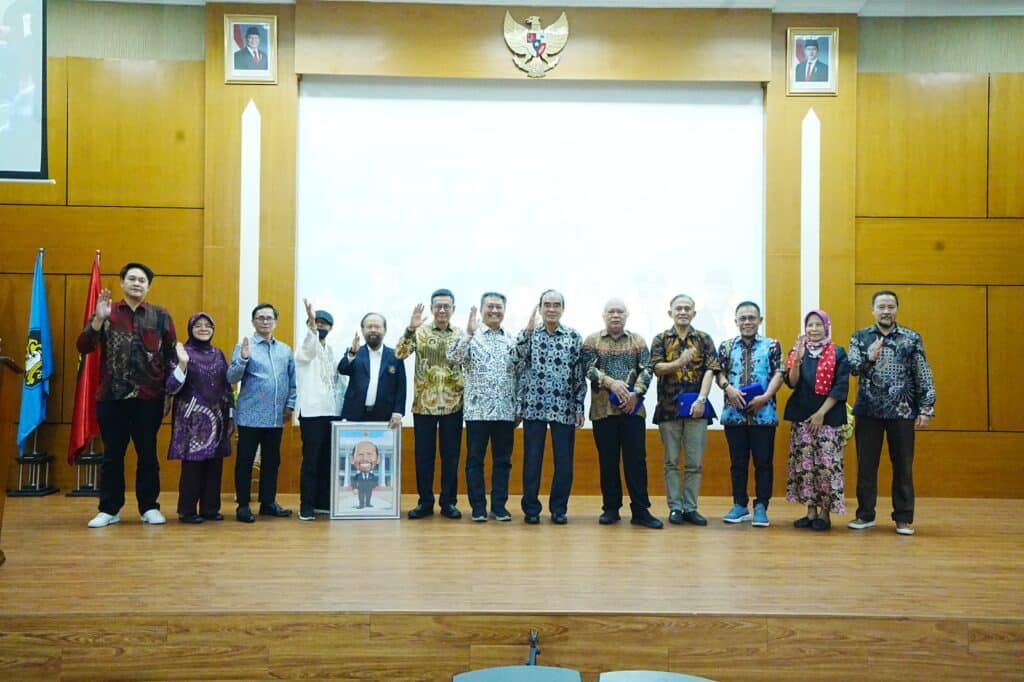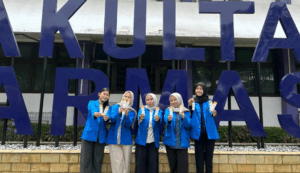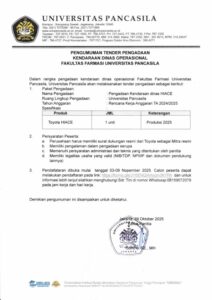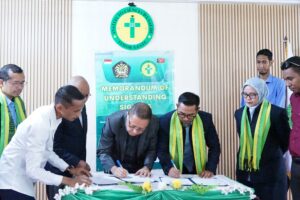
When we talk about the constitution, we are talking about the foundation of the nation. It is a living document that not only contains rules but also reflects the nation's noble values and shared ideals. So where do alumni fit into the broader narrative of the constitution? Alumni are a tangible manifestation of national development. We are not merely products of educational institutions, but also part of a constitutional system that places knowledge and morality as pathways to national advancement. Alumni are agents of change.
Alumni are a bridge between academic values and social reality. Alumni, in the Constitution, are not merely about existence, but about their role. Their role is to uphold the institution's dignity, their role is to be guardians of public morality, and their role is to translate constitutional values into concrete actions—whether as public officials, professionals, entrepreneurs, activists, or educators. Therefore, the Master of Laws program at the Faculty of Law, Pancasila University, considers it crucial to hold an activity entitled "Constitutional Movement and Reason in Art," which involves the active participation of all PMIH FHUP alumni.
On July 25, 2025, an MPR Four Pillars Socialization activity was initiated which was wrapped in art, namely a Ludruk performance. With speakers who were all alumni of PMIH FHUP, namely: H. Abidin Fikri, SH, MH (Deputy Chairman of the MPR-RI Socialization Agency), Rear Admiral TNI (Ret.) Soleman B Ponto, ST, MH (Head of the Intelligence Agency for the 2011-2013 Period), Masinton Pasaribu, SH, MH (Regent of Central Tapanuli, North Sumatra Province) and Commissioner General of Police (Ret.) Drs. Heru Winarko, SH, MH (Head of the BNN for the 2018 to 2020 Period) with PMIH FHUP lecturers as speakers.
The relationship between art and the constitution is a complex and interconnected one, reflecting the dynamics between freedom of expression and legal constraints within a country. This relationship can be viewed from several perspectives. Ludruk is a form of traditional East Javanese theater that is rich in artistic, cultural, and social values. Ludruk is not only a spectacle, but also a medium of collective expression that can be studied from an artistic and constitutional perspective. Ludruk is a concrete form of freedom of cultural expression as guaranteed by the constitution, such as Article 28C of the 1945 Constitution, the right to develop oneself through culture. Article 28E paragraph (3) freedom of opinion and expression. And, Article 32 of the 1945 Constitution, the state respects and advances regional culture.
Ludruk is a traditional art form that lives and breathes within the spirit of the constitution. It is a form of expression of people's freedom, a reflection of national life, and a reflection of cultural constitutionalism. Therefore, protecting ludruk is tantamount to safeguarding the space for cultural democracy, ensuring that the people have a voice not only in elections but also in the performing arts, humorous songs, and meaningful laughter.
Present at the event were Dr. HC. Ir. Siswono Yudo Husodo as Chairman of the Pancasila University Education and Supervisory Foundation (YPPUP), Prof. Dr. Adnan Hamid, SH, MH, MM, Dean of the Faculty of Law, Prof. Dr. Eddy Pratomo, SH, MH




